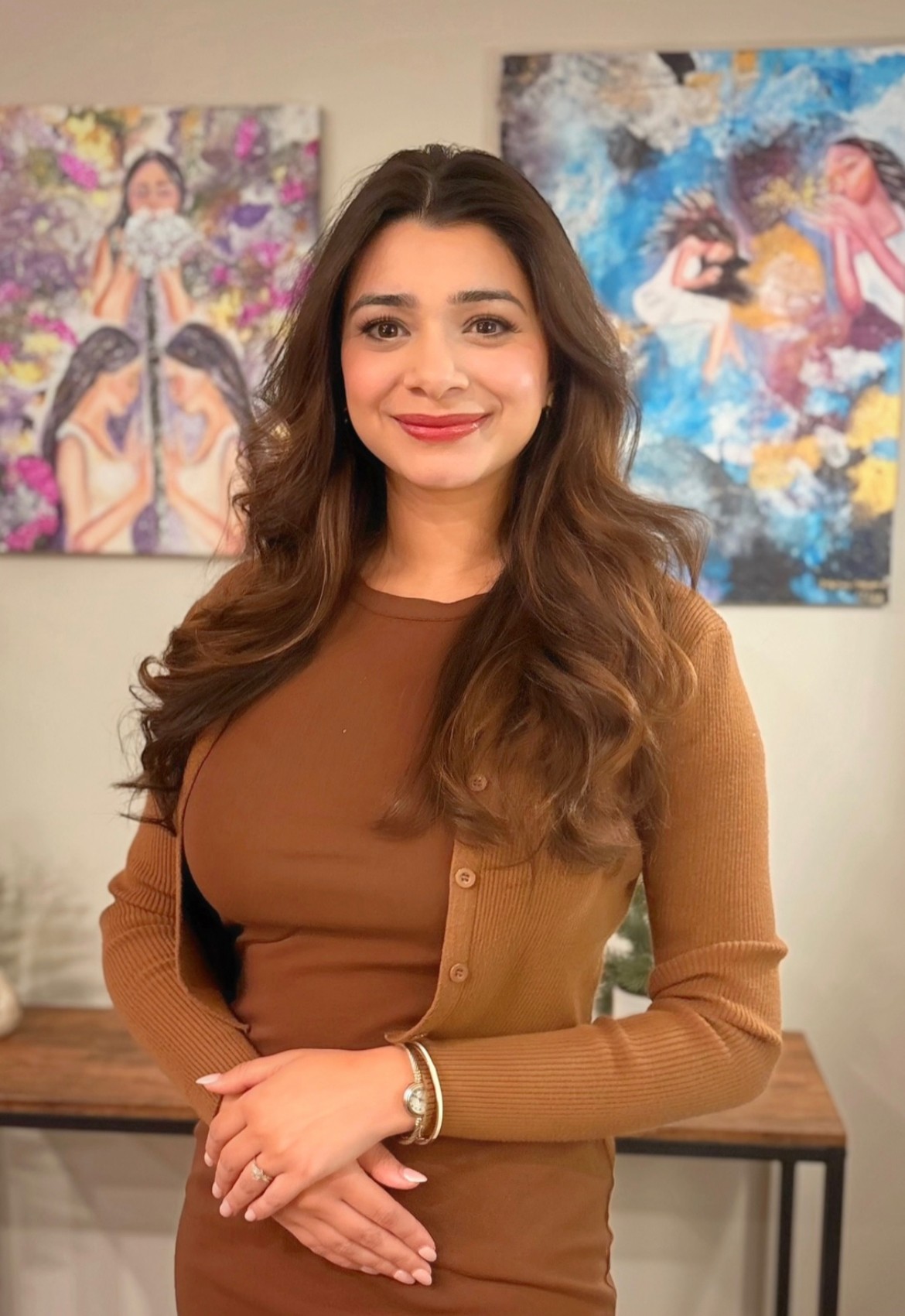

Today we’d like to introduce you to Mehak Merchant (MS, APC, NCC).
Hi Mehak, it’s an honor to have you on the platform. Thanks for taking the time to share your story with us – to start maybe you can share some of your backstory with our readers?
I’ve always been fascinated by people’s stories, how they make meaning, how they heal, and how they navigate the world around them. This curiosity led me to an unconventional but meaningful path.
I was born in India, raised in Pakistan, and began my undergraduate degree in Turkey before eventually moving to Atlanta. My first job, at 16, was as a hairstylist in Pakistan. Coming from a family of cosmetologists, it seemed like a great way to earn some extra money on weekends. What I didn’t expect was how much I would learn about the complexity of people’s relationships with themselves through this work. Sitting with clients, I started to realize how much of our relationship with our bodies and with ourselves can show up in something as simple as a haircut. That was my first real exposure to the emotional layers underneath how people show up in the world.
After completing my undergraduate degree in Psychology, I worked as a Mental Health Technician at an eating disorder treatment facility. To my surprise, I found myself instinctively leaning on many of the same skills I had developed as a hairstylist, attuning to the unspoken, holding space for vulnerability, and exploring the deeper layers of self-esteem and body image. Around the same time, I also worked as a research assistant in a hospital-based lab studying the impact of domestic violence. That experience expanded my understanding of trauma and its ripple effects across mental, emotional, and physical health. Together, these roles became some of the earliest affirmations that I was meant to be a therapist.
Before fully stepping into the clinical world, I spent several years working as an Academic Advisor at Georgia State University, specializing in retention and graduation outcomes and working closely with seniors at risk for not meeting degree requirements. During the pandemic, that role shifted dramatically. Suddenly, students weren’t just coming in to talk about missing classes or their grades; they were sharing stories of loss, isolation, and profound anxiety. Many didn’t know how to access mental health care and I became one of their first points of contact. I found myself wishing I could do more, and that longing became the push I needed to pursue my Master’s in Clinical Mental Health Counseling.
The road wasn’t linear, but every part of my journey taught me something essential. Leaving a full-time job during a global pandemic to follow my calling was a leap of faith, but one that continues to unfold in beautiful ways.
We all face challenges, but looking back would you describe it as a relatively smooth road?
Not at all and honestly, I’m grateful for that. The road has had a lot of unexpected detours, each one shaping who I am and how I show up in my work. The first big challenge came when I decided to leave my full-time job as an Academic Advisor during the pandemic to pursue my master’s degree full-time. That leap felt extremely risky at the time, but it was also one of the most aligned decisions I’ve ever made.
When I first started my master’s program, I thought I had a clear plan: complete my Master’s, go straight into a doctoral program and stay rooted in academia. I began working as a Research Assistant on a project that looked at Trauma and Spiritual Meaning-Making and fell in love with this work. This work spoke to so many different aspects of my identity and in many ways, taught me some extremely important lessons. I assumed the doctoral track would be my path. But once I began my clinical practice during my internship, everything shifted. Being in the room with clients, witnessing transformation in real time, and holding space for human complexity was unlike anything I’d experienced. That was the turning point where I realized I wanted to fully immerse myself in clinical work. I realized that the most rewarding parts of my research experience were simply capturing small snapshots of what clinical practice would evolve into.
As you know, we’re big fans of you and your work. For our readers who might not be as familiar what can you tell them about what you do?
I am currently a Lead Therapist at Anchored Wellness & Psychotherapy in Midtown. In addition to this, I also have experience working as a Primary Therapist at a local outpatient Eating Disorder treatment facility. I specialize in Eating Disorders/Disordered Eating, Trauma, Mood disorders and Spiritual Meaning-Making. Having worked in a variety of settings and supported clients across multiple levels of care, I’ve developed a strong ability to meet clients where they are and provide the support they need most.
My clinical work integrates practices like EMDR and Brainspotting with a strong emphasis on the mind-body connection. These somatic approaches allow clients to access deeper layers of healing, especially when words alone can’t fully capture their emotional experiences. As an Eating Disorder provider, inviting the body into the therapeutic space has truly been a transformative experience. As a bilingual therapist, I’m particularly attuned to the ways language can both reveal and limit expression. I’ve seen how somatic work can open new pathways for emotional processing, bypassing the constraints of language and allowing clients to connect with their inner experience in a more embodied way.
Outside of my professional life, I’m an artist, and creativity plays a meaningful role in how I engage with the world. That part of me naturally informs my therapeutic presence. I often invite clients to explore creative expression through storytelling, imagery, music or art as a way to connect with their internal world in a more expansive and personal ways.
What I’m most proud of is my ability to bridge the clinical and the intuitive, the structured and the creative. My academic and research background gives me a strong clinical foundation, while my lived experiences growing up across multiple cultures, observing ancestral practices, and navigating layered identities allows me to hold space for the full complexity of a person’s story.
What sets me apart is the integrative lens I bring into the therapy room. I strive to create spaces where clients feel safe to bring in every part of themselves body, culture, emotion, identity, and creativity, allowing themselves to be fully seen in the process.
We all have a different way of looking at and defining success. How do you define success?
Being a therapist has completely changed my view of success. When I was younger, I assumed success was about the external accolades or prestige. However, so much of what I have had the privilege of observing is the intricacies of people’s internal world. This experience has completely shifted my view of the human experience and by extension of success. I no longer see success as a grand milestone or in monetary achievements; rather, I have found it in the quiet meaningful moments that happen every day inside the therapy room and outside. As a clinician, success is about the balance I strive for between the science and the art of therapy, the evidence-based tools and the intuitive, sometimes (dare I say magical) moments where connection and insight meet. When I see that blend happening, and when clients start to reconnect with themselves, that feels like real success to me.
Contact Info:
- Website: https://www.anchoredpsychotherapy.com/mehak-merchant-ms-ncc-apc
- Instagram: https://www.instagram.com/p/DHlx3TdR5J4/?img_index=1
- Other: https://renfrewcenter.com/breaking-barriers-a-professionals-role-in-eating-disorder-awareness-for-bipoc-communities/















